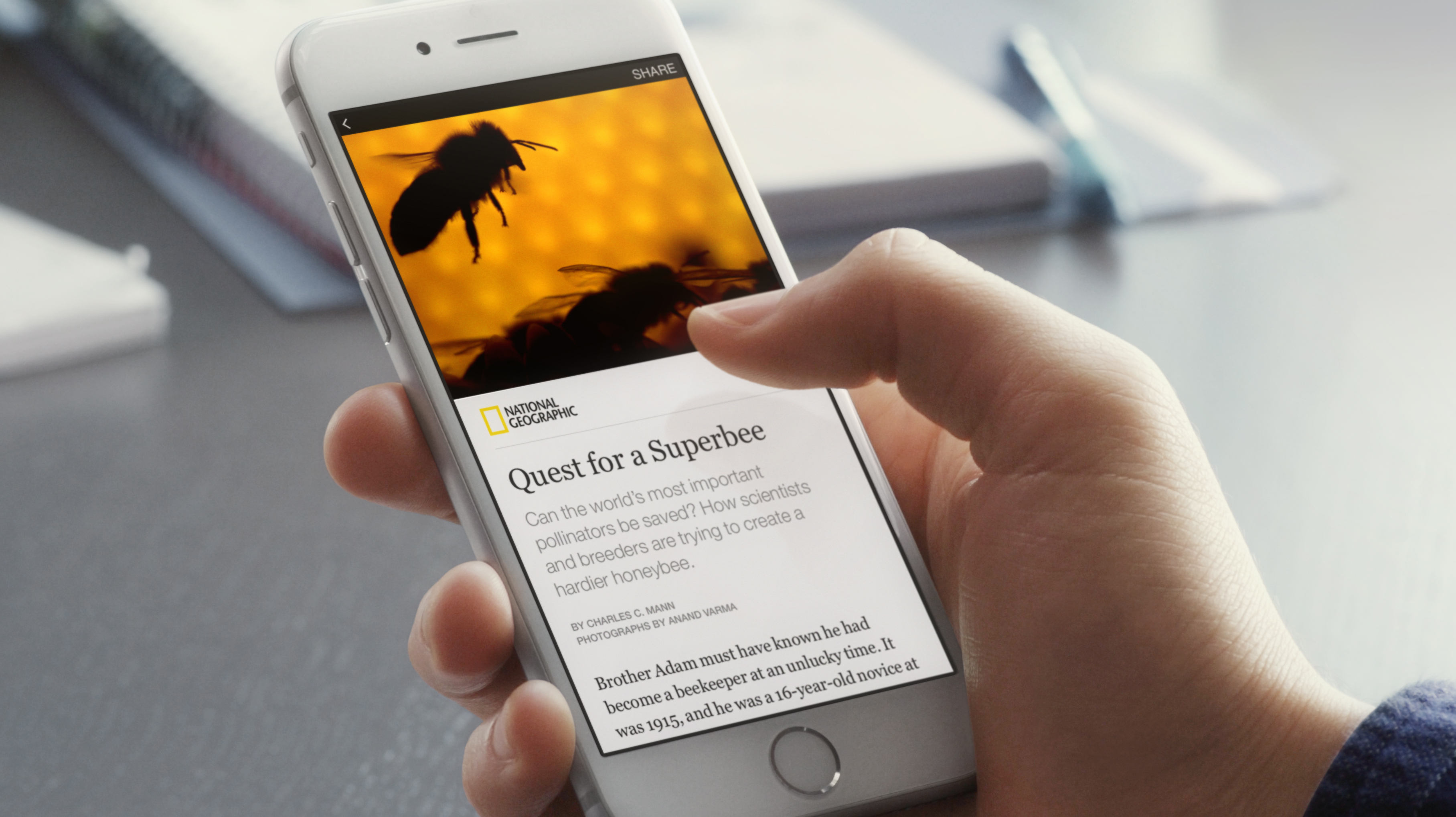A Faustian bargain with Facebook
Everything you need to know, in four paragraphs

A free daily email with the biggest news stories of the day – and the best features from TheWeek.com
You are now subscribed
Your newsletter sign-up was successful
Here's everything you need to know, in four paragraphs:
Facebook just made news publishers "an offer they couldn't refuse," said Alan D. Mutter at the Los Angeles Times. Nine high-profile media companies — including The New York Times, BuzzFeed, BBC News, and The Atlantic — have agreed to publish some of their content directly on the social network, rather than linking to their own sites. The decision to give up control of their "expensively produced content to another brand" couldn't have been easy for publishers, but "it was inevitable." With 1.4 billion users, Facebook already drives the preponderance of news-site traffic. In many ways, this deal simply "institutionalizes" publishers' "long-running dependency" on the social network's vast reach.
"At first blush, this sounds like a pretty straightforward exchange of value," said Mathew Ingram at Fortune. Facebook gets engaging content, and publishers get access to Facebook's massive user base, plus 100 percent of the revenues from any ads they sell themselves and 70 percent from ads that Facebook sells. But it's still a "classic Faustian bargain." Facebook isn't interested in the ad revenue; it wants to "solidify its status as the default place where millions or possibly even billions of people go to get their news." And though the social network is playing nicely now, "we already know what happens when Facebook loses interest in something: It withers and dies." Just ask Zynga, which was a multibillion-dollar social-gaming company promoted by Facebook "until it suddenly wasn't." In the quest for more readers, news outlets have put their very futures "in Facebook's hands."
The Week
Escape your echo chamber. Get the facts behind the news, plus analysis from multiple perspectives.

Sign up for The Week's Free Newsletters
From our morning news briefing to a weekly Good News Newsletter, get the best of The Week delivered directly to your inbox.
From our morning news briefing to a weekly Good News Newsletter, get the best of The Week delivered directly to your inbox.
Media insiders are overreacting, said Timothy B. Lee at Vox. For one thing, "the benefits to users are immediate and obvious"; the new "instant articles" load faster and look better — which news organizations should want. Nor is this "an unprecedented change" in news distribution; publishers have always been dependent on third parties to distribute their work. I was initially skeptical of this pact with Facebook, but I'm actually feeling "oddly reassured," said Will Oremus at Slate. The terms of the deal are far better than I imagined. And if media companies could "pry their gaze from their own abdomens," they'd realize they have leverage. Facebook needs to keep publishers happy in order to compete with social media offerings from Google, Snapchat, and Twitter, now and in the future.
Facebook may even help publishers make more money, said Jack Marshall at The Wall Street Journal. Facebook knows "how to effectively target and track mobile ads" better than anyone, and it will sell a whopping 33 percent of all mobile ads in the U.S. this year. Since news organizations stand to reap 70 percent of the money from ads Facebook sells on their branded content, they could be in for a windfall; after all, 70 percent of a lot of ad revenue is still more than 100 percent of not much. Among publishers, "there's not as much hand-wringing as you'd expect," said Lucia Moses at Digiday. Outlets left out of the initial partnership, like CNN and Time Inc., hope to jump on board soon. The fact that they are "determined not to be left behind" suggests that this isn't the "fateful choice" critics would have us believe.
A free daily email with the biggest news stories of the day – and the best features from TheWeek.com
-
 How the FCC’s ‘equal time’ rule works
How the FCC’s ‘equal time’ rule worksIn the Spotlight The law is at the heart of the Colbert-CBS conflict
-
 What is the endgame in the DHS shutdown?
What is the endgame in the DHS shutdown?Today’s Big Question Democrats want to rein in ICE’s immigration crackdown
-
 ‘Poor time management isn’t just an inconvenience’
‘Poor time management isn’t just an inconvenience’Instant Opinion Opinion, comment and editorials of the day
-
 The pros and cons of noncompete agreements
The pros and cons of noncompete agreementsThe Explainer The FTC wants to ban companies from binding their employees with noncompete agreements. Who would this benefit, and who would it hurt?
-
 What experts are saying about the economy's surprise contraction
What experts are saying about the economy's surprise contractionThe Explainer The sharpest opinions on the debate from around the web
-
 The death of cities was greatly exaggerated
The death of cities was greatly exaggeratedThe Explainer Why the pandemic predictions about urban flight were wrong
-
 The housing crisis is here
The housing crisis is hereThe Explainer As the pandemic takes its toll, renters face eviction even as buyers are bidding higher
-
 How to be an ally to marginalized coworkers
How to be an ally to marginalized coworkersThe Explainer Show up for your colleagues by showing that you see them and their struggles
-
 What the stock market knows
What the stock market knowsThe Explainer Publicly traded companies are going to wallop small businesses
-
 Can the government save small businesses?
Can the government save small businesses?The Explainer Many are fighting for a fair share of the coronavirus rescue package
-
 How the oil crash could turn into a much bigger economic shock
How the oil crash could turn into a much bigger economic shockThe Explainer This could be a huge problem for the entire economy